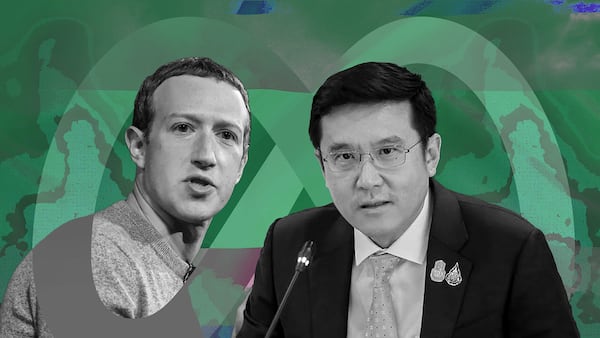- Uniswap delegates have passed a preliminary vote to consider multichain deployment for Uniswap v2.
- Launched three years ago, Uniswap v2 has only ever been deployed on Ethereum.
- Uniswap Foundation says the proposal will protect users on other blockchains from unsafe forks.
The Uniswap community has passed a vote to expand the second version of its decentralised exchange, called Uniswap v2, on other blockchains apart from Ethereum that has been its home since its launch in May 2020.
Uniswap’s plan for a multichain deployment strategy for Uniswap v2 is partly to protect users from unsafe forks — copycat versions of its protocol that have been deployed across different blockchains.
The vote, which began last week, is an off-chain temperature check poll — a preliminary vote used by decentralised autonomous organisations to gauge initial sentiment for a proposal within the community.
It ended on Wednesday with almost unanimous approval as 98% of votes cast by participants were in favour of the proposal.
Despite passing almost unanimously, the proposal was criticised within the community.
“I feel this initiative comes too late, the optimal time would have been in 2021,” said a DAO member with the pseudonym kfx, who warned the rollout may cause liquidity issues in the long run and hurt the rollout of the upcoming fourth version of the exchange.
Those in support of the proposal say it is “better late than never” and that a multichain Uniswap v2 deployment will help capture market share from unsafe copycats.
NOW READ: Uniswap Asia lured Chinese investors with parties, dancers, and an airdrop — it was all fake
The proposal will move to an on-chain execution vote following this initial temperature check approval. This second vote could begin on September 1 unless delegates raise objections after this first vote. Uniswap v2 will be deployed on other blockchains if the second vote passes.
Uniswap v2 remains a popular automated market maker-style decentralised exchange and the proposal says users of other blockchains besides Ethereum will benefit from having a canonical version of the protocol.
The proposal says these benefits include full-range liquidity for token swaps and the fact that the Uniswap v2 smart contract is one of the most secure on Ethereum.
The hitch-free nature of this governance process is in contrast to the fiery debates that characterised the first few Uniswap v3 multichain deployment votes. Uniswap v3 is an upgrade of v2 launched in May 2021.
Early Uniswap v3 cross-chain deployment votes saw disagreements among delegates as venture capital investors tried to sway the outcome to their benefit.
The Uniswap proposal
As of July, Uniswap v2 has accumulated a total trading volume of $1.45 trillion since its launch in May 2020, according to data from a Dune dashboard. The upgraded v3 is not far behind with $972 billion.
Uniswap’s multichain deployment strategy has only focused on its v3 DEX but focus appears to be shifting to the previous version.
NOW READ: Uniswap’s v4 gives devs powerful ‘hooks’ tool but there’s a catch — more risk
Uniswap Foundation’s governance lead Erin Koen inked the proposal, arguing that the lack of a multichain deployment for Uniswap v2 has allowed copycats to thrive on other blockchains.
Some of these copycat forks contain modified codes that are unsafe for users and could lead to losses whereas Uniswap v2 is “among the most battle-hardened contracts on Ethereum,” the proposal stated.
Several Uniswap forks with modified codes have been hacked in the past. Uranium Finance, a Uniswap fork deployed on the BNB Blockchain, was hacked for $50 million in April 2021.
To avoid future issues and hacks, the proposal calls for Uniswap v2 to be deployed on all chains that already have Uniswap v3.
The proposal stated that the combination of both versions of the Uniswap DEX will provide better execution for token swaps. It also added that Uniswap v2 will be able to draw liquidity from unsafe copycats.
‘Better late than never’
Koen’s proposal drew mostly favourable comments from community members who participated in the forum discussion stage of the governance process.
The only criticism came from DAO member kfx who said that deploying v2 on chains that already have Uniswap v3 will cause liquidity fragmentation — a problem that occurs when liquidity for trading is spread too thinly among different platforms.
NOW READ: Uniswap taps Wormhole for bridge deal in win for Jump Trading and defeat for a16z
Rather than deploy Uniswap v2 on other blockchains, kfx instead recommended that the focus should be on the launch of Uniswap v4.
Those who support the proposal, like crypto research company and Uniswap contributor GFX Labs, said the plan is “better late than never.”
Others also stated that the proposed move would stem the tide of fake copycats, especially on newer chains like Coinbase’s Base.
Earlier in August, Koen warned that there was a non-canonical version of Uniswap v3 on Base. This fake copycat modified part of the protocol’s code to divert trading fees to the entity that deployed it on the Coinbase blockchain.
Uniswap Foundation advised DeFi developers and traders on Base to be wary of the non-canonical version.
Osato Avan-Nomayo is our Nigeria-based DeFi correspondent. He covers DeFi and tech. To share tips or information about stories, please contact him at osato@dlnews.com.


